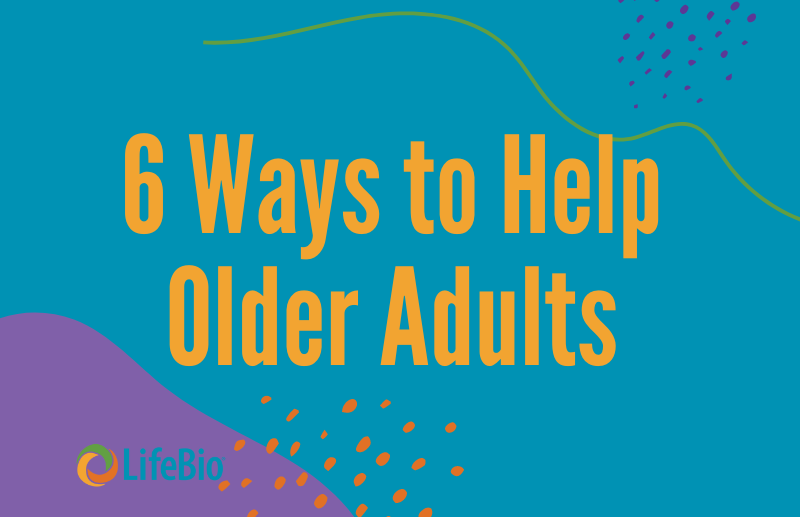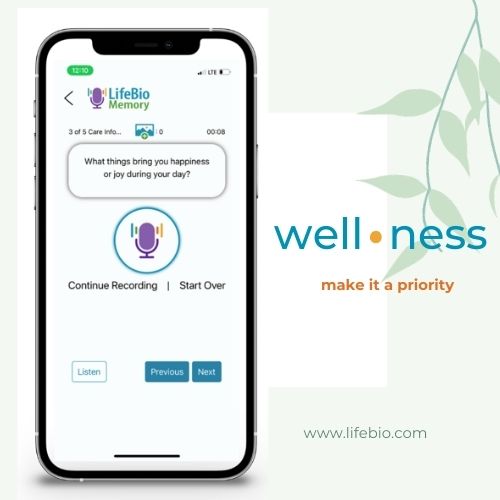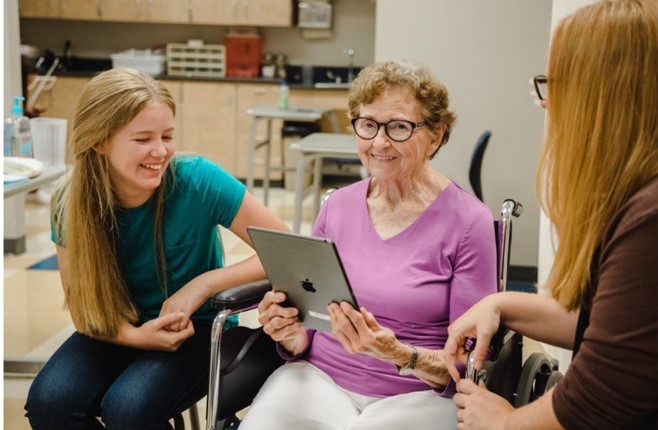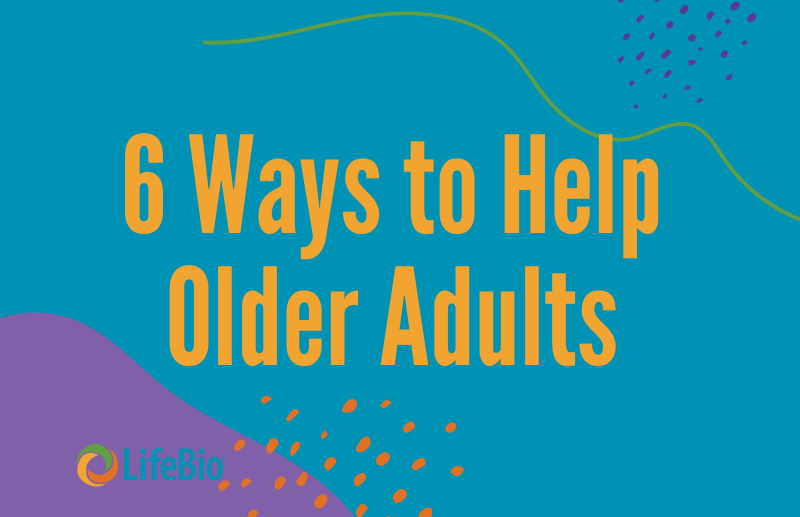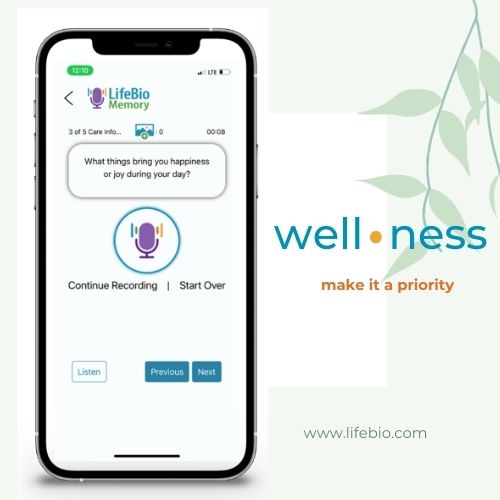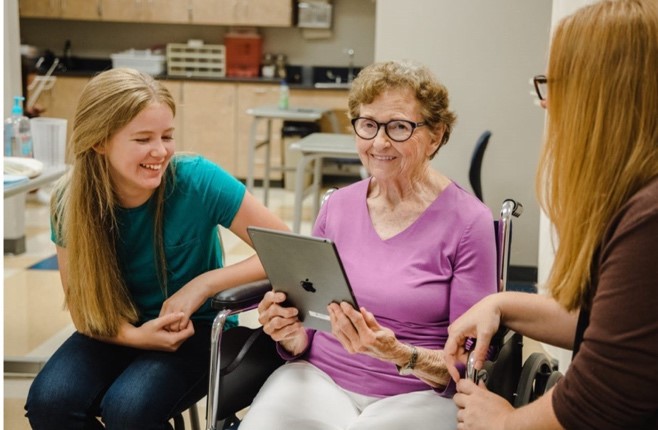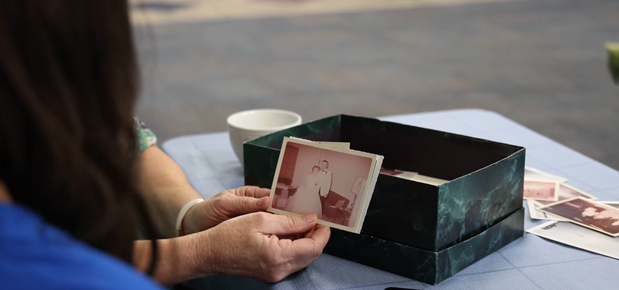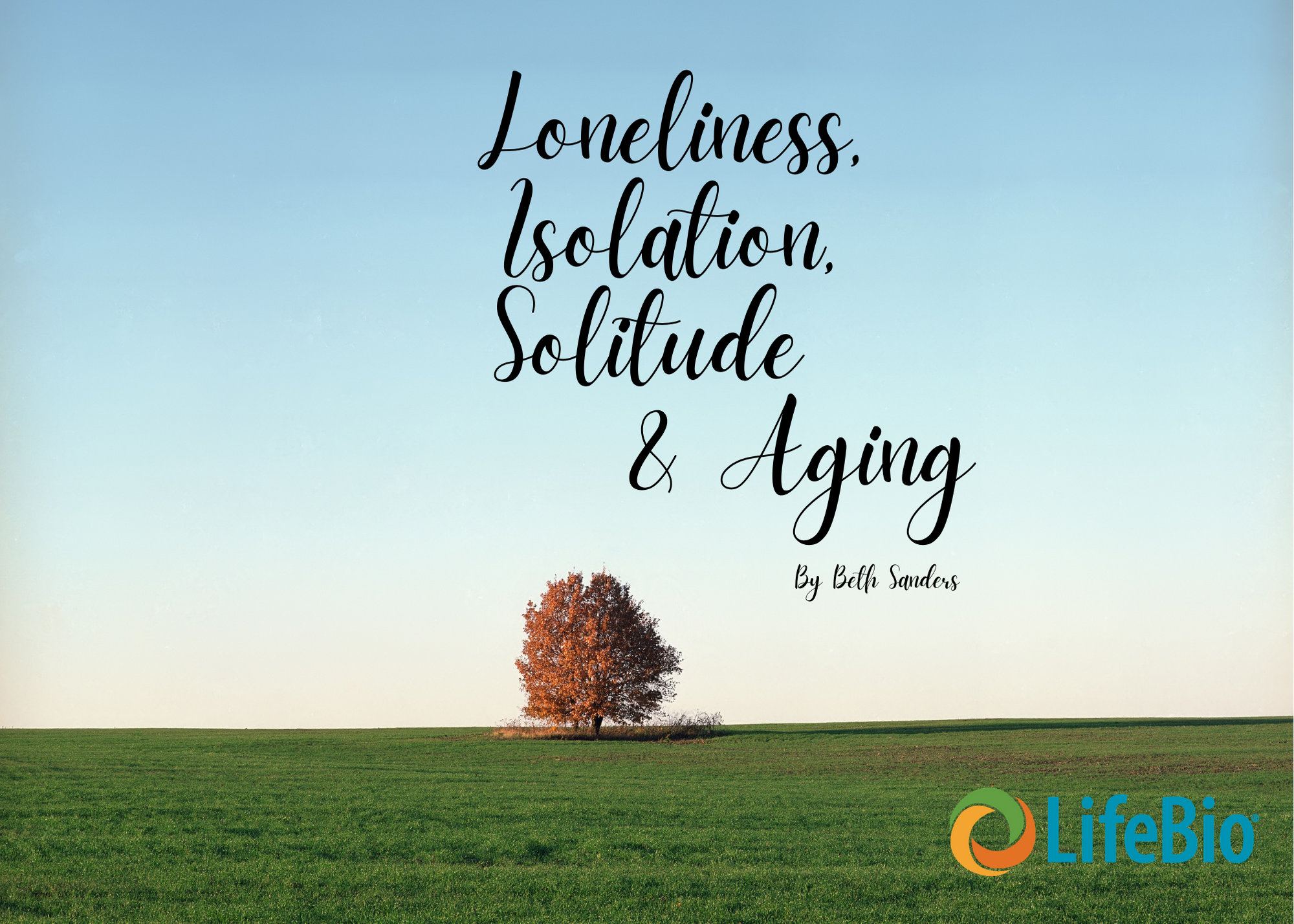The cold, short days of winter can feel isolating to the older adults around us. Here are 6 ways you can help the older adults in your life combat loneliness.
READ MORELifeBio impacts wellness and helps people create a care plan and a LEGACY
LifeBio's reminiscence therapy touches ALL dimensions of wellness. That's why it cannot be ignored as a tool to use with people living at home, in senior living, assisted living, nursing homes, or with those who have memory challenges. Besides unlocking a fascinating story, it leads to an amazing opportunity for engagement.
Here is how LifeBio impacts wellness:
LifeBioBRAIN: Cognitive Screening Prototype for Alzheimer's or Other Forms of Dementia
A study conducted at the Brown Medicine Geriatrics Practice established that a geriatric primary care population with mild cognitive impairment or dementia found the LifeBioBRAIN (LBB) cognitive screening prototype usable. The study also demonstrates the usability of cognitive testing on a take-home device in a geriatric primary care setting. This work was funded by the National Institute on Aging SBIR program. The app is not yet in market; further clinical trials and advancements in scoring are ahead.
READ MOREReminiscence Therapy- The Treatment of Storytelling
Did you know that you can provide feelings of comfort and safety to a loved one with dementia or other forms of memory loss simply by asking questions or discussing things about their past? It's called reminiscence therapy, and it's easy and effective!
READ MOREWhat are Reminiscence Methods?
LifeBio uses Reminiscence Methods ("RM") to connect, engage, and enrich lives. Reminiscence Methods are appropriate for people of all ages and levels of cognitive function when tailored to their specific needs. Reminiscence Methods are most commonly used with seniors and is “the discussion of past activities, events and experiences with another person or group of people, usually with the aid of tangible prompts such as photographs, household and other familiar items from the past, music and archive sound recordings”. [1] RM use prompts to find common ground and make connections between individuals who may or may not have cognitive deficits.
READ MOREExperiences of Loneliness, Social Isolation, & Solitude for Older Adults
In the U.S. and worldwide, there is mounting evidence that loneliness and social isolation are growing problems that lead to major health risks and personal distress. There is also growing understanding of the value of solitude and its impact on positive states of wellbeing for older adults. Related to these topics, issues that come from experiences of dementia, widowhood and grief, problems that occur in residential care or nursing homes, spirituality and faith, and lessons from centenarians will be specifically examined in their relation to loneliness, isolation, and solitude.
READ MOREThe Power of Life Stories in Health Care
Every person has a story to tell. Storytelling is something we have experienced around the kitchen table or a warm campfire. Tales of great joy, tragedy, adventure, or love are told as we share our own human experiences with each other. Narrative and reminiscing are appropriate and useful in health care (narrative medicine, narrative care, humanities in medicine). It is also useful in daily life because: 1) Nearly anyone can participate in life review; 2) Life stories can help with a positive sense of identity; and 3) As people reach the end of their lives, it can result in integrity and reconciliation (Kenyon, et al. 2011, p. 291-292). It is especially helpful in the lives of older people as psychiatrist Dr. Robert Butler first documented in 1963; it comes naturally to reminisce with the familiarity and comfort of sharing about one’s past experiences, especially as people reach into their 60s, 70s, 80s, 90s, and beyond.
READ MOREResearch Roundup on Reminiscence and Life Review
For thousands of years, people from diverse cultures around the world have passed on their traditions, beliefs, and advice through the telling of stories. When writing a life story, writing an autobiography, or sharing some key memories with family or friends, stories…
READ MOREEmotional Wellness- Part 2 of 2
(This is a continuation from LifeBio’s blog on Emotional Wellness from Tuesday, June 30th.)
Storytelling and Emotional Wellness
Being a storyteller allows us to have control of the story we share. When we are allowed to construct a story, we get to determine the important parts. We can choose what to include, and we can filter out things that we deem smaller or less significant. We can find the deeper meaning in it all. We get to determine the significant characters, the important events, the turning points that we tell, and how things shape us. While living through events, we can interpret them through storytelling. We can decide if and what we want to share from our story with others on our journey. Jonathan Adler, PhD and professor of psychology, says, “You may not have control over all your circumstances, but you can choose how to tell the story.”
READ MOREWhat if your story is my medicine and my story is yours?
What if your story is my medicine and my story is yours? Story is medicine. It touches the soul. Story is a powerful tool to bring people together. When I hear your story, I walk in your shoes and experience feelings of caring and empathy. When you walk in my shoes, I can unburden myself from the problems of the day or relay my hopes, my feelings, or my emotions. Together, we may make each other laugh or cry. Another human being is a challenge to listen to and to understand. Every person has a story to tell, and every person benefits from both listening and being listened to.
READ MORE
